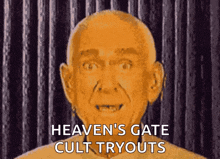I would say that your schematic breaks down at the 'Test with an Experiment' stage. I don't believe that an experiment exists that proves, or disproves, the existence of a creative entity behind the creation of the cosmos.
But if were to switch your original premise around:
[I just told mine that there was no way to prove the existence of God, but if they wanted to believe in the invisible Sky Fairy, then it's up to them.] Would become:-
-I just told mine that there was no way to disprove the existence of God, and if they wanted to believe that all of this vast universe around us produced itself out of nothing and for no purpose, then that's up to them.-
Then I would be brainwashing my kids?
I can't prove whether God exists or not nor what form that God might take so it comes down to faith. There are intelligent folk who believe in a creative being and intelligent folk who don't.
For me the evidence for a creator is all around me, but others disagree and I can respect their point of view and don't see any reason to try and belittle their views.
Just for the record I have a reasonable scientific background and have no issues with science, indeed I think science and religion go hand in hand, science describes mechanisms and is relatively objective whilst religion deals with 'why' and is more abstract but both can learn from each other.
Finally neither of my children are churchgoers, my daughter has a basic belief in God but has fallen out with the church (a view I can certainly sympathise with), my son operates with basically Christian values but without any real indication of a belief in God. I don't try to 'convert' either of them but they know my views and they know I love them unconditionally.



